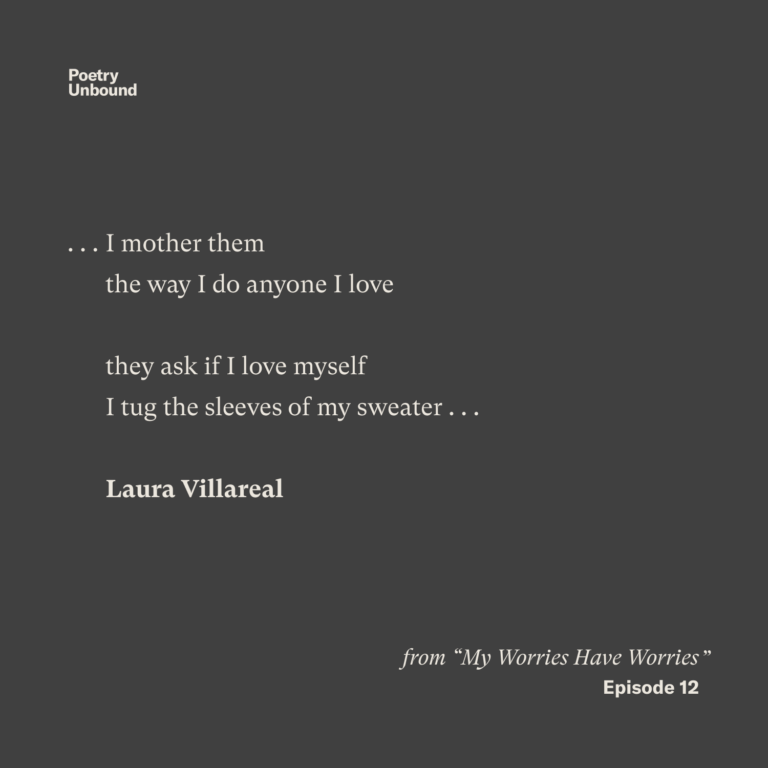
Image by Matteo Pezzi/Flickr, Some Rights Reserved.
The Poem I Would Have Writ
Our lives leave a trail of words, even when we’re not speaking or writing. With every move we make — at home and at work, with friends and strangers, in public and in solitude — we’re dictating the next few lines of the text called our lives, composing it as we go.
How best to go about “composing a life”? That’s the title of a highly regarded book by Mary Catherine Bateson, so I know I’m not alone with my question. William Wordsworth said we arrive on this planet “trailing clouds of glory.” What kind of text trails behind us as we live out our time on earth? Does it read as tedious or banal, uncaring or resentful, fearful or angry, or something better than any of that?
Fifty years ago, when I was in my mid-twenties, lost and seeking guidance on what it means to live well, I found a compelling clue to composing something better. In Henry David Thoreau’s A Week on the Concord and Merrimack Rivers, there’s a section on the life of the artist. Without explanation or elaboration, as if the idea had just popped into his head and he had to capture it before it fled, Thoreau drops this simple couplet into a dense stream of prose:
“My life has been the poem I would have writ
But I could not both live and utter it.”
What a remarkable notion, that the text one writes with one’s life might be a poem! Of course, if you regard poetry as little more than flowery verse, you’ll find the idea cloying: life is not all sweetness and light. But neither is poetry, rightly understood. The poet Paul Engle says:
“Poetry is boned with ideas, nerved and blooded with emotions, all held together by the delicate, tough skin of words.”
And Robert Penn Warren adds:
“For what is a poem but a hazardous attempt at self-understanding: it is the deepest part of autobiography.”
Poetry at its best is as close to the bone as life itself.
Thoreau’s claim that we can live our lives as a poem seized my youthful imagination. As time went by, his couplet began to haunt me (or taunt me) with the sense that it concealed a secret I only half-understood. So, three years ago I set out to unearth that secret by writing a book titled, of course, The Poem I Would Have Writ.
I re-read Thoreau, collected quotes and footnotes, made outlines and sketches, wrote and rewrote chapters, and talked with my friends about it until they must have wished I’d get a new idea. Or new friends. After an ungodly amount of research, reflection, and writing, it became clear that my book just wasn’t happening. A few months ago, I abandoned the project, feeling defeated by the failure of my long-time quest.
But here’s the thing about the fact that we are all dictating words with our lives: keep living and the words will keep coming. Pay attention to what they say, and occasionally they will surprise you by composing themselves into something of meaning. Recently, as I sat down for my early-morning journaling, Thoreau’s couplet came back to me for the umpteenth time. That’s how obsessions work! Thirty minutes later, the poem below had shown up in rough draft. After playing with it for a few more days, I felt I’d come as close as I can to the secret of “the poem I would have writ.”
It took me 50 years of being dogged by Thoreau’s couplet to arrive at this destination — not a book of many pages, but a five-stanza poem written by an amateur poet who loves to watch life become words and words become life. That’s one stanza per decade!
Still, the journey is the destination, and I’ve learned from every step. With this poem in hand, praise be, I can finally make peace with the book that will never be, the book I thought I should have writ.
The Poem I Would Have Writ
My life has been the poem I would have writ
But I could not both live and utter it.
—Henry David ThoreauThe first words are the hardest. Sound
surrounds you in the womb, grows louder
when you’re born. You listen. You know
the day will come when you must speak
words, too — that’s how we make our way
through this trackless landscape called
the world. But how? And what to say?
And what does saying do?Later, words come easily. You learn
to speak the language of what you
want and need, to help you find a
pathway into and through your life,
to make it clear what you believe,
reach out to friends, find work to do,
heal your wounds, ease your fears,
get chance on chance to give love
and receive. Sometimes words leap
out of you in ways you soon regret —
or in ways so magical you silently
rehearse them, hoping never to forget
how these words came out of the blue,
begging to have life breathed into
them by you. You live a life of words.Then you learn that first words aren’t
the hardest. The hardest are the last.There’s so much you want to say,
but time keeps taking time and all your
words away. How to say — amid the
flood of grief and gratitude you feel —
“Thank you!”, or “How beautiful, how
grand!”, or “I’m so glad I survived…”,
or “I was changed forever the day
we two joined hands and lives.”As you reach for your last words,
you realize, this is it — this ebbing tide
of language called your life, words
trailing into silence, this unfinished poem
you would have writ — had it not been
for the heartache and the gift of all
the years that you’ve been living it.

